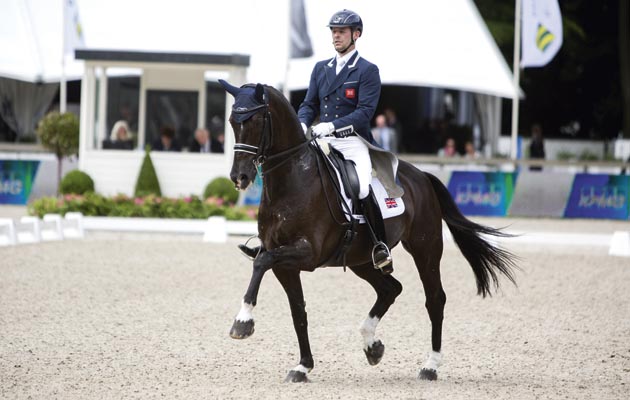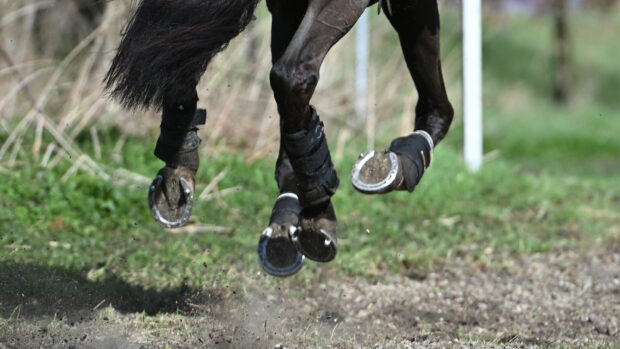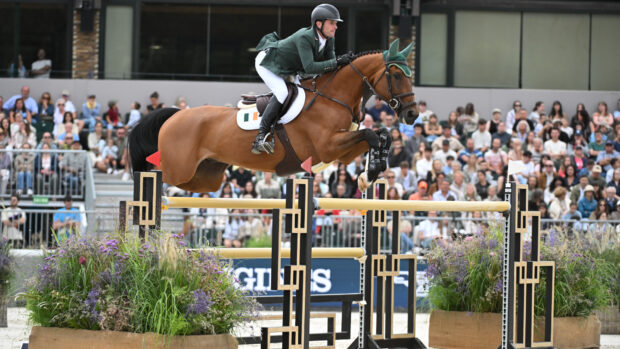The FEI’s dressage judging working group (DJWG) has put forward 19 recommendations for improvements to the current system, including a focus on the cognitive efficiency of judges and the development of a “code of points”.
The DJWG report also identified five key principles which should underpin a dressage judging system: transparency; ease of understanding; fairness to all competitors; ease of use and flexibility to review and adjust.
The working group was led by Frank Kemperman; FEI bureau member and organiser of Aachen, as well as FEI director of dressage Bettina de Rham; Mexican five-star judge Maribel Alonso; riders Richard Davison and Kyra Kyrklund, and Global Dressage Analytics founder and developer of the judge’s dashboard David Stickland.
As well as evaluating the crrent system and making recommendations for improvement, the panel also looked to other subjectively-judged sports —including reining and vaulting — for comparison.
They recognised that in other disciplines a “division of judging tasks” was sometimes used enabling judges to focus on certain aspects of a performance. They also noted that when visibility is limited, other sports often employed technology to bridge the gap.
As a result, the DJWG recommended that each judge is “only tasked with evaluating aspects for the horse/rider which they can actually see clearly” and that all future standard judging directives and references be formatted to ensure that they are relevant to specific viewing positions.
The use of new technology was addressed, with the DJWG recommending the FEI further investigate the possible use of sensors to measure certain movements. The paperless scribe system, E-scribe, already in use at some events, should also be taken further, they suggested.
The panel drew on several external sources to inform their investigation, including requesting a review of judging from Katrina Wüst, which focussed on the potential influence of bias.
She reported that influences judges need to be made aware of were order (draw) bias; conformity bias; memory-induced bias (judges should “switch off” previous recollections of horses and riders); reputation bias; patriotism and the “anchoring affect” — a cognitive bias for an individual to rely too heavily on an initial piece of information offered when making decisions.
Continued below…

Pressure mounts on FEI to overhaul dressage judging [H&H VIP]
As score discrepancies become an increasing bugbear, the International Dressage Riders Club says it’s time for a new-look system

Calls for dressage judging overhaul: FEI responds
The FEI has responded to suggestions that dressage needs a judging overhaul

Subscribe to Horse & Hound magazine today – and enjoy unlimited website access all year round
A group from Nottingham Trent University (NTU) was also approached to supply the expert advice on the cognitive demands placed on judges. This included evidence-based information on human attention capability, concentration, memory, bias, perception, vision and other parameters.
The NTU Group reviewed video footage showing a number of consecutive dressage movements from the FEI grand prix test. They concluded that a repeated and sustained attention level was required by dressage judges and the role involved a complex and demanding cognitive processing load.
In response, the NTU backed the panel’s proposals for a code of points reference, formatted to optimise perceptual cognition processes and providing clear definitions of observable characteristics and how they should be quantified and measured.
The code of points formed one of the key proposals of the report, with a sub-committee (code of points advisory group) tasked with putting forward a draft code of points, which was presented by FEI judge Stephen Clarke. The DJWG recommended to the FEI that following review, the draft code be rolled out for use in all relevant classes.
When asked about the next steps, an FEI spokesman said: “The DJWG is still working with the code of points for the grand prix. The next step is for the FEI Dressage Committee to review the recommendations at the upcoming in-person meeting, which is scheduled for March. Further discussion on the recommendations will take place at this time.”
For all the latest news analysis, competition reports, interviews, features and much more, don’t miss Horse & Hound magazine, on sale every Thursday.




